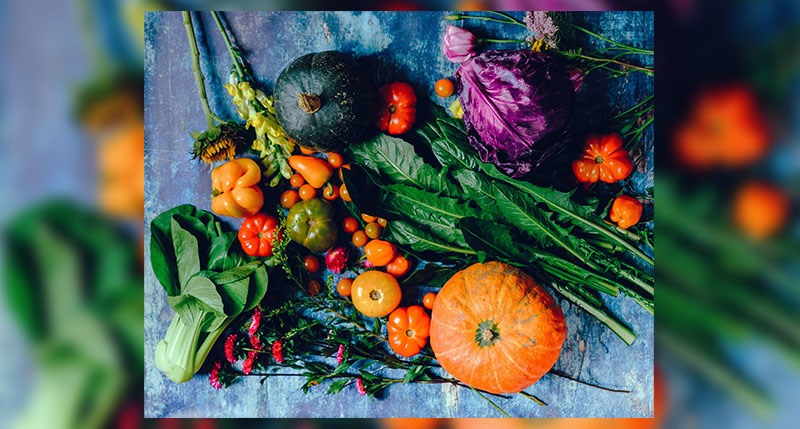December has arrived, and with it comes the longing for holiday traditions and family get-togethers. But pandemic precautions may prevent you from celebrating quite so closely this year.
Since keeping your distance may mean you end up cooking holiday meals for just your immediate family instead of an extended network of friends and family, consider this your opportunity to put a new twist on old traditions.
Get creative in the kitchen with a new holiday challenge: In as many ways as you can, incorporate superfoods into your holiday dishes. (Don’t worry ― picky eaters won’t even be able to tell!)
Superfoods: Packing a Positive Punch
What makes a food super, you ask? The short answer: Marketing. And, a powerful nutrient profile.
Promotion of certain foods as “super,” or at least nutritionally superior to other foods, dates back to the 1920s, when the United Fruit Company ran the first ads highlighting the health benefits of the banana. The tropical fruit, full of potassium and vitamin B6, lent itself well to colorful advertising. Thanks to the ads, according to the Harvard T.H. Chan School of Public Health, the humble banana soon became the first “superfood.” Today, bananas are still within the top three most imported fruits in the US.
Ever since the banana achieved superfood status, the food industry has continued to bestow the superfood label on select nutrient-rich foods with nutritional benefits. Some of these superfoods come with odd spellings that speak to their far-flung origins (can anyone pronounce açai correctly?). Some are touted by celebrities. And some are overlooked entirely because they’re simply too familiar to be exciting.
But that doesn’t mean these produce basics aren’t delicious, nutritious, and completely deserving of a place on your table.
Even your holiday table.
Here are 6 fantastic superfoods to make your holiday table healthy, no matter how many chairs ― or screens! ― happen to be seated around it.
- Sweet Potatoes
Yams for the holidays is an easy sell: Many of us grew up with some kind of sweet potato dish on the table every year. Whether you’ve retained the tradition or not, this common root vegetable deserves greater acclaim than it usually receives. It’s loaded with nutrients, including potassium, vitamins A and C, antioxidants, and a hefty serving of gut-healthy fiber.
- Olive Oil
A mainstay of the Mediterranean diet, consuming olive oil is an excellent way to reduce risk for heart disease. It’s full of monounsaturated fatty acids, polyphenols, and also contains vitamins E and K, antioxidants that help protect against cellular damage from oxidative stress.
To incorporate olive oil into holiday dishes, drizzle over roasted vegetables, use it as a salad dressing, mix it with herbs and dip rolls or bread into it, or try it as a topping for potatoes or stuffing in place of butter.
- Cruciferous Veggies
If it’s got some crunch to it when it’s raw, it’s probably a cruciferous veggie. Think broccoli, Brussels sprouts, cabbage, cauliflower, collard greens, kale, kohlrabi, mustard greens, radishes, and turnips. All of these vegetables are an excellent source of fiber, vitamins, and phytochemicals that help prevent several types of cancer.
If your holiday table doesn’t usually include non-traditional veggie dishes, here’s your chance to branch out. You can steam them, or you might try tossing them in olive oil and roasting them in the oven for a superfood “double whammy!” Or, if you’d rather take the “sneaky chef” route, add frozen cruciferous vegetables to soups, casseroles, and pasta dishes, allowing them to play more of a supporting role.
- Cranberries
Before you reach for that can of reddish-purple jello some folks call “cranberry sauce,” reconsider. With their health benefits and disease-fighting powers, real cranberries are so much better. Most commonly known for their ability to help prevent and treat urinary tract issues and yeast infections, cranberries also reduce the risk of heart disease, improve oral health, and help prevent ulcers. Their bacteria-busting, anti-inflammatory powers may even inhibit the growth of cancer cells.
- Greek Yogurt
Surprised to see dairy on this list? Greek Yogurt, regular yogurt’s thicker, creamier cousin, certainly makes the superfood cut. Full of protein and probiotics, it improves digestion while also supporting the immune system, and it’s satisfyingly filling, too. Plus, it’s super-easy to incorporate into meals. You can use it as a substitute for sour cream or cream cheese, swap it for mayonnaise, or even mix it with olive oil and herbs to make a flavorful dip for cruciferous veggies (see how this is all coming together?).
- Pumpkin
A holiday star from October through December, we all know pumpkins aren’t just for carving: They’re also for pie! But pumpkin is also surprisingly healthy, full of antioxidants and vitamins, and an abundance of beta-carotene, which the body uses to make vitamin A, another powerful immune booster that also happens to be essential for eye health.
Admittedly, no single food holds the key to perfect health. However, intentionally eating more foods known to pack a nutritional punch is a great way to make yours a healthier holiday season.

